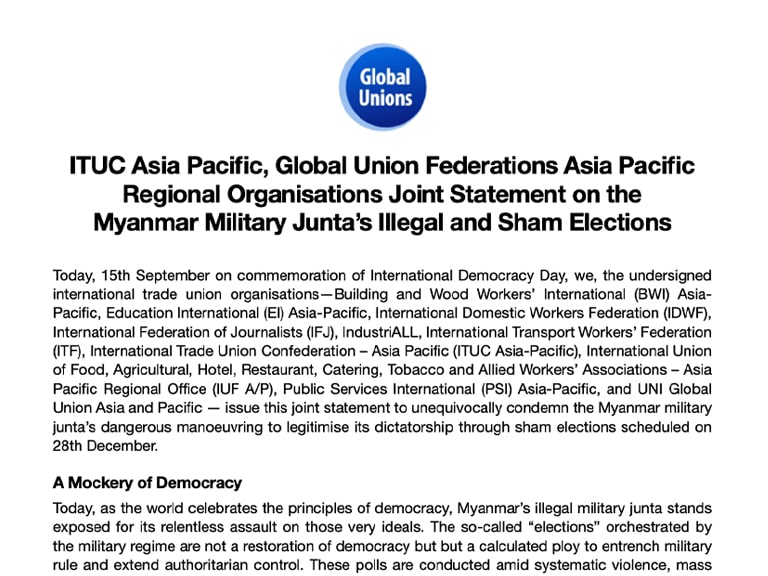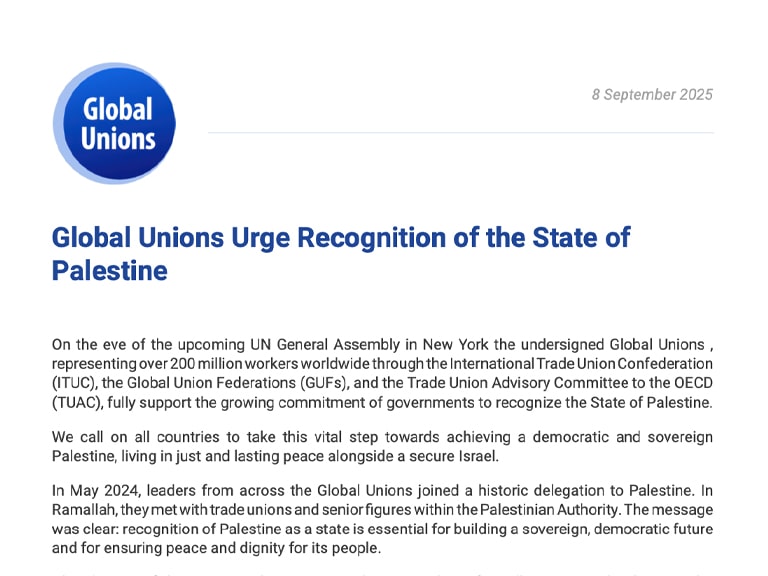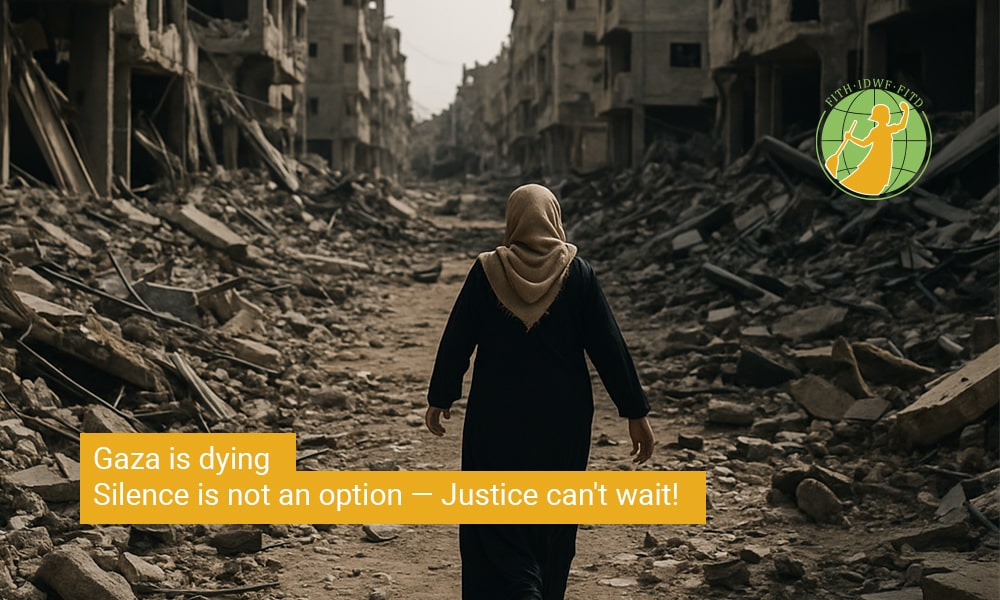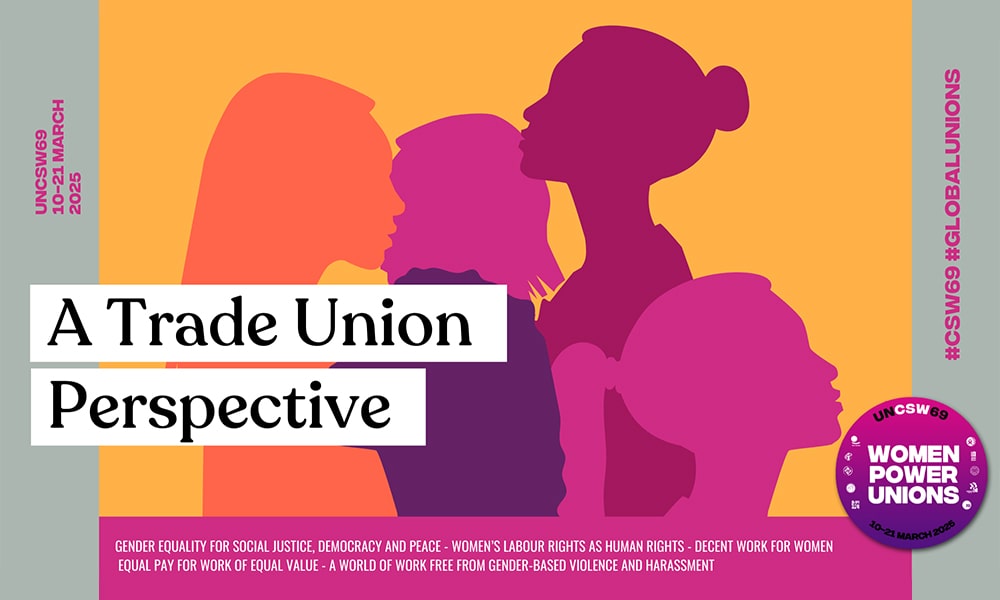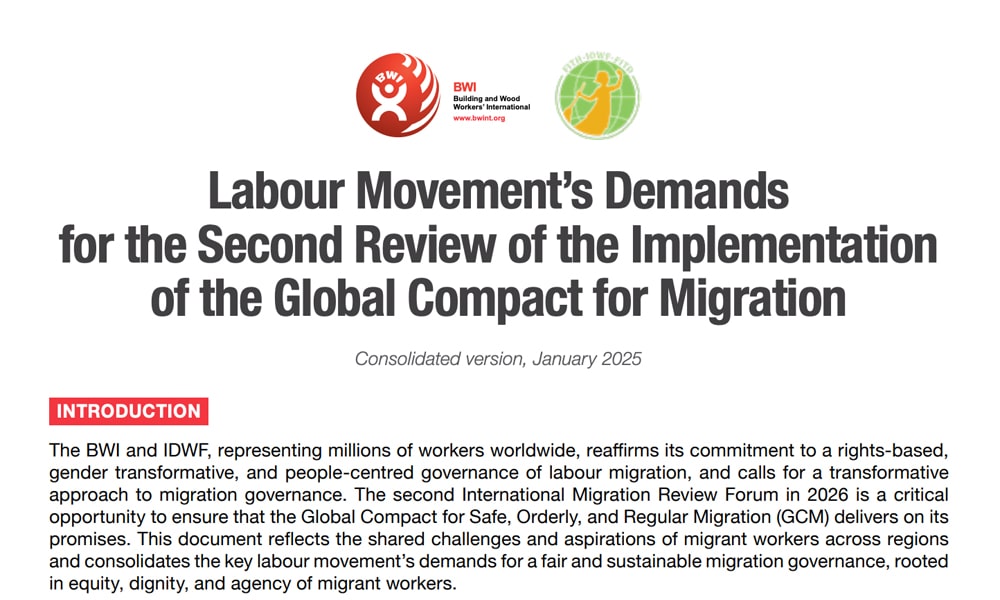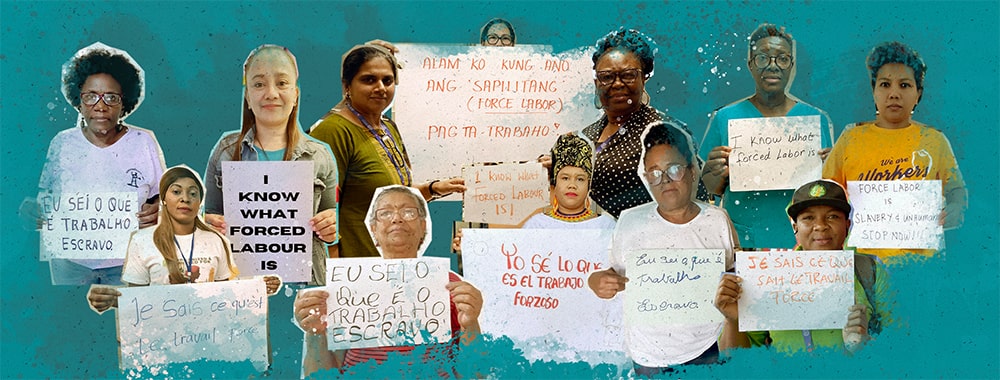
In this year’s International Labour Conference #ILC2023, IDWF made our movement’s voice heard globally, demanding an immediate end to the exploitation, forced labor, and human trafficking conditions faced by Migrant Domestic Workers in Lebanon during the Committee on the Application of Standards (CAS), where the Convention 29 on Human Trafficking and Forced Labor was being reviewed.
Workers from the Middle East operate in precarious and dangerous conditions, under the Kafala system. They call to “Stop Human Trafficking: Protect Domestic Workers!”
Our affiliates around the world joined the campaign to share how forced labor impacts their own work. They said “I know what Forced Labor is!”
Hear their voices.
Our Delegate, Sandrine Akaffou, represented the experiences and demands of fellow domestic workers in Lebanon during the Committee on the Application of Standards. See her speech here.
Read the full text below:
“Esteemed Chair, Delegates, Observers,
It is no secret that migrant workers in Lebanon are struggling under the Kafala system, an exploitative sponsorship that links the residency of migrants to their employer. Their status depends entirely on the employers’ decisions; the workers are denied basic human dignity and social protection, their passports are confiscated, their working conditions are left to the whim of an employer and cannot be considered voluntary working conditions.
Hence, there can neither be free labor nor any ethical contract under Kafala. The kafala system not only induces a form of human trafficking due to the unawareness of potential abuses among migrant workers but also initiates abuse the instant they enter the employer’s household due to the creation of forced labor conditions as their labor is extorted under threat.
Seeing the governmental response limited to band-aid solutions such as bilateral agreements, instead of a full-fledged commitment to international standards, is worrying. When it comes to the example referenced by the government, neither Lebanon or Ethiopia have ratified C189, and the Lebanese labor law does not include migrant workers. To request compliance with non-existent laws is misleading. The mentioned agreement does not extend to all nationalities affected by the Kafala system neither. This selective approach to resolving the problem risks creating a hierarchy of protections. Bilateral agreements do not and cannot stand as a replacement to universal rights for all.
The selective focus on agency-level reform doesn’t get to the root of the issue – the Kafala system. While their licenses may sometimes be revoked due to illegal malpractices, workarounds available such as re-registering the agency in the name of another family member are applied to keep the agency running.
The complaints reported by the Ministry do not reflect the full extent of violations and abuses. Migrant domestic workers often face barriers to reporting abuses, including language, fear of retaliation, and lack of information about their rights. The nature of their work, in private households and often isolated from the outside world, contributes to the invisibility of their struggles and to put in silence mode their suffering.
The prevalence of common practices such as passport confiscation, despite only 2 judicial rulings against them, continue to be the routine form of coercion forces many domestic workers to stay with their employers, clearly violating the intent of the Convention C29. The exclusion of domestic workers from the Lebanese Labour Code is a systemic form of discrimination that contravenes the C29 Convention’s mandate of universal application.
Furthermore, the mere existence of legislation or decrees does not translate into access to justice or protection of rights, particularly for marginalized communities such as migrant domestic workers.
Whether the response by the government mentions several laws, orders, circulars, in reality, in the case of abuse, Migrant Domestic Workers are forced to adopt an individualized solution and leave the employers’ home which is their workplace, and face charges of “absconding”.
Furthermore, the status of their visa is not regularized, therefore disallowing them access to justice. Accessing any formal systems of justice means revealing their status as an undocumented worker, which puts them under pressure to find a new employer and regularize their status within the grace period.
Lebanon’s recent efforts do not address the inherent issues with the Kafala system nor does it restructure the labor system to ensure fair treatment, equal rights, and strict compliance with international labor conventions. It falls short of fulfilling the intent of the ILO C29 Convention’s fundamental aim: the elimination of all forms of forced or compulsory labor.
The prevalent atmosphere of fear and distrust towards authorities inhibits domestic workers from exercising their rights, effectively making their labor “involuntary.”
We urge the International Labor Organization (ILO) to deploy a direct contact mission to Lebanon to establish a dialogue with all stakeholders and enable the development of legislative change that uphold international labor rights, to ensure the protection of migrant workers their human dignity, labor rights and the protection they deserve against the current conditions of forced labor.”
IDWF is pleased to report that our leaders’ efforts have paid off, and CAS decided to establish a direct contact mission in Lebanon to ensure the demands of our members are met and so forced labor conditions are no longer the status quo.
Download here

